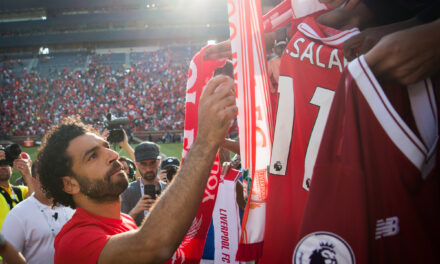Big news recently dropped for soccer fans, being that MLS Commissioner Don Garber recently announced that Major League Soccer would be increasing the number of teams to 30, an increase of two from the previously agreed-upon ceiling of 28. Currently the league has 24 teams, with Nashville SC and Inter Miami CF set to debut in 2020 followed by Austin FC in 2021, bringing the total at that point to 27. If the two current entrant front-runners of Sacramento and St. Louis are successful in their bids to become MLS franchisees, one city will remain to fulfill Mr. Garber’s overall ceiling of 30 teams.
Since its inception a little over two decades ago with a mere 10 teams, there’s no denying that the league has grown overall financially. The most recent applicants will be paying a franchise fee of $200 million, which will go directly into the coffers of the league. In addition, all new MLS teams are required to play in their own MLS-approved soccer-specific stadium. Small wonder that the most recent crop of owner-investors has a net worth in the billions of dollars. But as the league has continued to expand, has the talent pool of the players kept pace with this growth?
As fans and supporters of local MLS clubs, we have seen an increase in ticket prices to support new stadiums, as well as the onset of local television rights being owned by new streaming services. DC United, for example, jettisoned their local broadcasting channel for streaming service FloSports, at a fan-cost of $12.49/month. New club FC Cincinnati has chosen the same path, as has LAFC. While this has raised the ire of some fans, the owners are looking for a way to capitalize on their investments in the MLS.
Such income generation thus far has not seemed to raise the quality of play within the league. While we are occasionally treated to recognized names like Wayne Rooney and Carlos Vela, MLS teams have shown little improvement when pitted against other CONCACAF teams. Witness the most recent CONCACAF Champions League match, where the farthest advancing team from MLS, Sporting Kansas City, lost to Monterrey by an aggregate score of 10-2 earlier this month. In fact, despite being in operation since 1996, no MLS team has won any silverware outside of their own league.
While two decades of existence may place the MLS in its infancy compared to soccer leagues outside of the United States, it’s critical that MLS teams continue to grow in quality as well as financially. When a team enters the MLS, the cost of the franchise fee and a new stadium should not diminish the need to build a quality local academy in order to produce the quality level needed in future players to compete not just nationally but globally as well.






